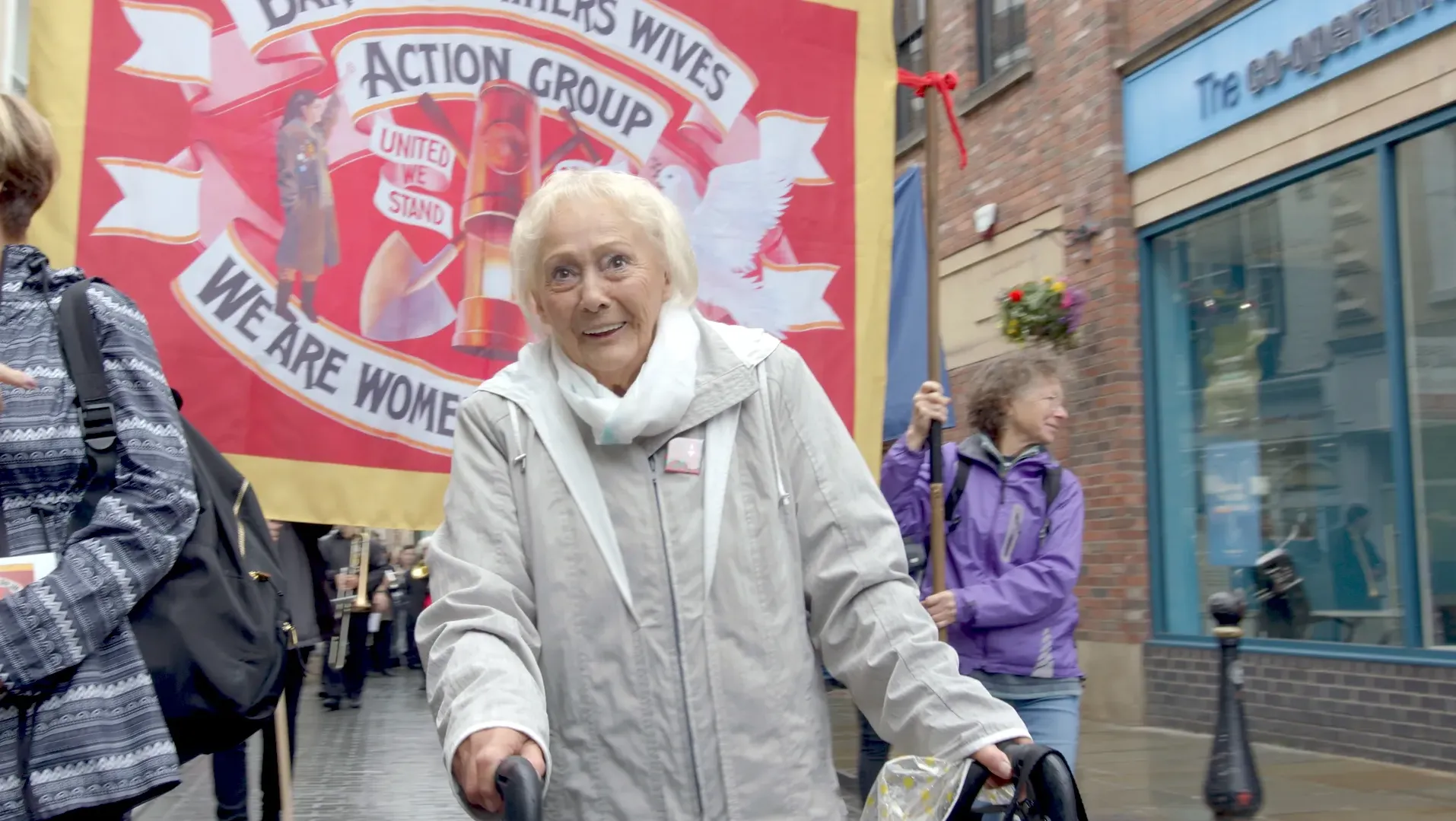The enduring image of the 1984-1985 Miners' Strike is that of men standing arm in arm against police and of mass protests devolving into mayhem – with protesters being beaten and knocked to the ground.
But it wasn’t just men who were on the front lines, as Iron Ladies recalls. Directed by Daniel Draper, the documentary focuses on the essential and inspiring efforts of working-class women – some wives and daughters of miners, some neighbours – who organized as Women Against Pit Closures.
Though some of the women had previous connections to local party politics, or to the CND and other protest movements, many had never before been politically active. But when an immovable force, namely Prime Minister Margaret Thatcher, barged into their lives, they were moved to take fight back.
“I put on my best coat, my high heels, and a pencil skirt that I’d borrowed and clip-clopped down to a meeting,” says one. “The room was just buzzing. All these women.” Unfortunately, Draper doesn’t identify every speaker in his film. (Pictured below: Betty Cook, co-founder of Women Against Pit Closures, fights on)
 For local groups, the most urgent task was to feed their families. The Thatcher government declared the strike illegal, so out-of-work miners could not draw on the robust coffers of the National Union of Mineworkers.
For local groups, the most urgent task was to feed their families. The Thatcher government declared the strike illegal, so out-of-work miners could not draw on the robust coffers of the National Union of Mineworkers.
As one woman recalls, fundraising became a strictly cash affair. At one point, she hid £35,000 in donated money beneath a spare bed before making sure it was distributed to those in need.
This activism, from picket lines to publicity, came with a price. The women's phones were wiretapped (“Sounds like a wind tunnel coming from the other end”) and there was occasional blowback from their own families. Husbands were generally supportive – the strike drew couples closer, but one woman sadly recalls that her mother told her she was “unfit” to be a parent for spending so much time on the picket lines.
Draper doesn’t appear in the film, though we hear his voice occasionally, and his rapport with his subjects is strong. What’s hard to watch, though, is the film’s interstitial footage of now-abandoned collieries all over Britain. Like rusted giants, they stand as silent witnesses to an industry, a way of life, brutally quashed in an effort to break the unions’ political power.
Forty years on, the women of Iron Ladies refuse to call the strike a failure. For many, it was an awakening, a step toward leadership in intersecting social movements, including women’s health. Speaking out now, says one activist, is not merely to commemorate the women’s work, but to celebrate it, and to inspire young women to stand up for change. “There’s a long way to go before we get what we want,” she says. When you see a woman in her eighties at the forefront of a protest, pushing her walking frame and leading a chant, it’s impossible not to be stirred.















Add comment